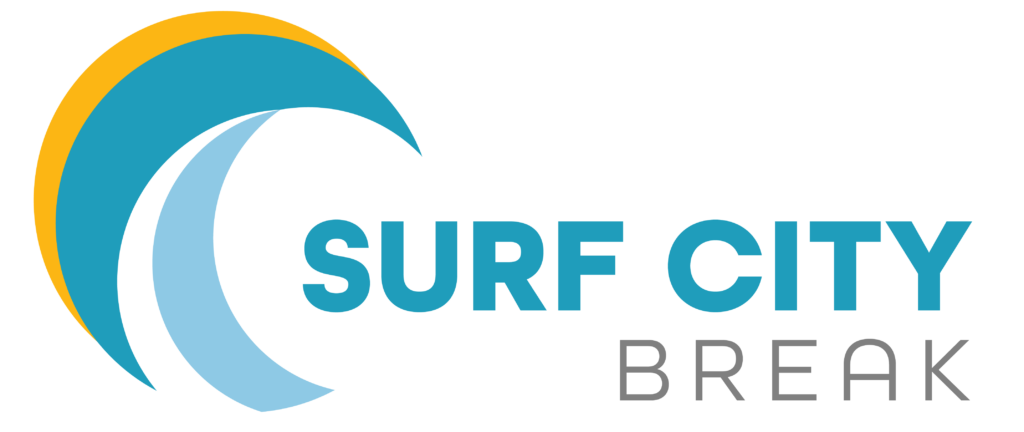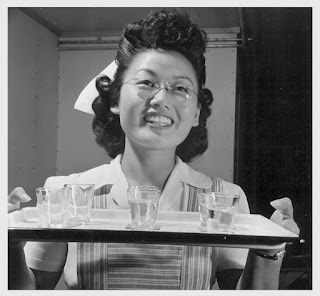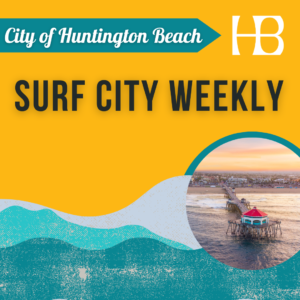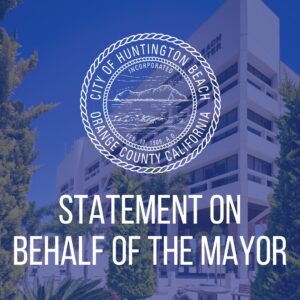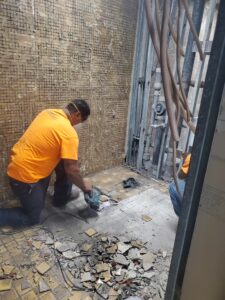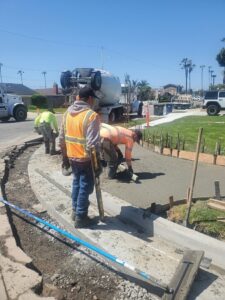In honor of Asian American Pacific Islander Heritage Month, the City reflects of its early Japanese history and we feature Tatsukawa family.
The photo shown is officially captioned “Pretty Kiyoko is shown demonstrating her most charming bed-side manner, before administering medicine to the fortunate patient” and was taken by a federally contracted photographer to document life inside the Poston Internment Camp in Arizona. Kiyoko Tatsukawa, along with 10 other young women had recently finished a year-long training course for nurse’s aides there.
Following the attack on Pearl Harbor on December 7, 1941, President Roosevelt signed Executive Order 9066, authorizing the incarceration of Japanese Americans on February 19, 1942. By March 1942, the War Relocation Authority had been created to administer it.
In April, like many in our community, Kiyoko’s entire family were removed from their Huntington Beach home on Hampshire Avenue. Kiyoko, sister Yemiko and brother Masayuki (“Mike”) had all been born in Orange County. The sisters were graduates of Huntington Beach High School and Mike was captain of the tennis team and in his senior year there at the time.
While the rest of the family was sent directly to Poston, Kiyoko’s father Manruko – a modest chili farm manager – was sent to Fort Missoula in Montana. Together with other “undesirables” including Italians and Germans, he was one of some 1,000 Japanese men considered somehow influential and given further “loyalty” tests. None were ever charged. After an anxious few months, Manruko joined his family at Poston. They remained incarcerated there for another three and a half years. Both Kiyoko and her sister Yemiko married there. Brother Mike registered there for the draft.
When they were finally released, none moved back to Huntington Beach where the opportunities that first lured Kiyoko’s parents there had turned into forced incarceration. She and her sister went with their husbands to new destinations.
Her parents and brother returned to Manruko’s first American home in Gallup, New Mexico. Soon after his arrival in the United States, Manruko and other family members had opened the Eagle Café there where they were welcomed by the predominantly immigrant Hispanic population. In 1942, the people of Gallup became the only community which voted to prohibit internment there. In this safe place, the family took the Eagle Café over, with Mike as manager and Manruko as cashier. They remained there until their deaths decades later.
